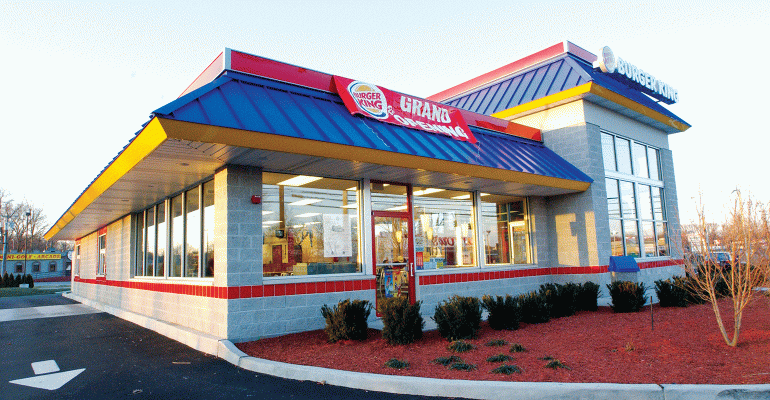Fresh off of its quick acquisition of Popeyes Louisiana Kitchen, Restaurant Brands International Inc. finds itself with a different challenge: Sales weakness at its flagship brand, Burger King.
RBI said on Wednesday that Burger King’s same-store sales fell 2.2 percent in the U.S. in the quarter ended March 31 — a relatively rare result for the brand since its 2010 acquisition by 3G Capital.
Company executives on Wednesday cited difficult comparisons for the weakness. A year ago, Burger King posted 4.2 percent same-store sales increase, making for two-year same-store sales of 2 percent.
At the same time, however, rival McDonald’s Corp. this week said its same-store sales rose a surprisingly strong 1.7 percent in the U.S., and it was coming off an even stronger quarter from a year ago — 5.4 percent.
“In the first quarter, we were lapping one of the strongest quarters from last year,” RBI CEO Daniel Schwartz said. “It’s a competitive industry. It always has been, it always will be. It doesn’t change our focus and our drive, to drive great guest satisfaction.”
Schwartz also said that some of Burger King’s biggest initiatives in the period, its Crispy Chicken Sandwich, and its Froot Loops Shake, were introduced late in the first quarter. As such, they did not have much impact on the first quarter sales number.
Still, investors were not all that thrilled. RBI’s stock opened Wednesday down 5 percent.
“We try not to get too caught up in quarter-to-quarter results,” Schwartz said. “We’re invested in this business for the long run. But we’re confident we have the right strategies in place.”
He said the products introduced late in the quarter should help the company’s sales all year.
Adding Popeyes
RBI, which also operates Tim Hortons, announced plans in February to buy Popeyes in a $1.8 billion deal. That acquisition was completed with remarkable speed just one month later.
Restaurant Brands executives, speaking at length on the deal for the first time, expressed confidence in their ability to quickly expand the chain, which had 2,743 locations as of March 31.
“We view chicken as a huge global category already developed around the world,” Chief Financial Officer Josh Kobza said on the earnings call. “Popeyes already has a large, global business. It has built partnerships, supply chain, operations. We have a lot of confidence around where we can take the brand.”
Popeyes reported a modest same-store sales decline of 0.4 percent in its home U.S. market in the period. Still, executives believe that its bone-in chicken will work well in numerous markets. Chicken is a popular protein, and chains like KFC have already demonstrated global consumers’ enthusiasm for the product.
And Popeyes already has a head start, having expanded to 25 countries. “We think the brand and the product offering resonates with guests around the world,” Schwartz said.
Tim Hortons espresso
Tim Hortons same-store sales declined 0.1 percent in the quarter, including a 0.2-percent fall in its important Canada market, where it has 3,800 locations.
It’s the second straight quarterly decline there for the Canadian institution. Still, Schwartz said, “We’re excited about the initiatives we have in place that can enable us to grow sales and profits.”
The company is launching a line of espresso drinks in Canada, a product executives believe will jumpstart sales next year. The company launched this by opening an unbranded pop-up shop — revealing only later that the espresso drinks were from Tim Hortons.
Franchisee relations
Executives on the earnings call also said they disagreed with complaints from Tim Hortons franchisees on the quality of the brand’s food offerings, and said the company works with operators to improve profits.
Earlier this month, Tim Hortons operators in Canada announced the formation of the Great White North Franchisee Association — and then listed several complaints. Operators complained about the company’s use of ad fund contributions and reduced local advertising. They also complained about the brand’s use of procurement powers and what they call “subjective performance metrics.”
“We don’t agree with some of the comments around food quality,” Schwartz said. “We work with an elected advisory board, that’s been elected by franchisees for many years. They are the foundation of the system. We work in close collaboration with them. And each year since we acquired Tim Hortons, we’ve grown profits for our franchise partners to record levels.”
Contact Jonathan Maze at [email protected]
Follow him on Twitter: @jonathanmaze





